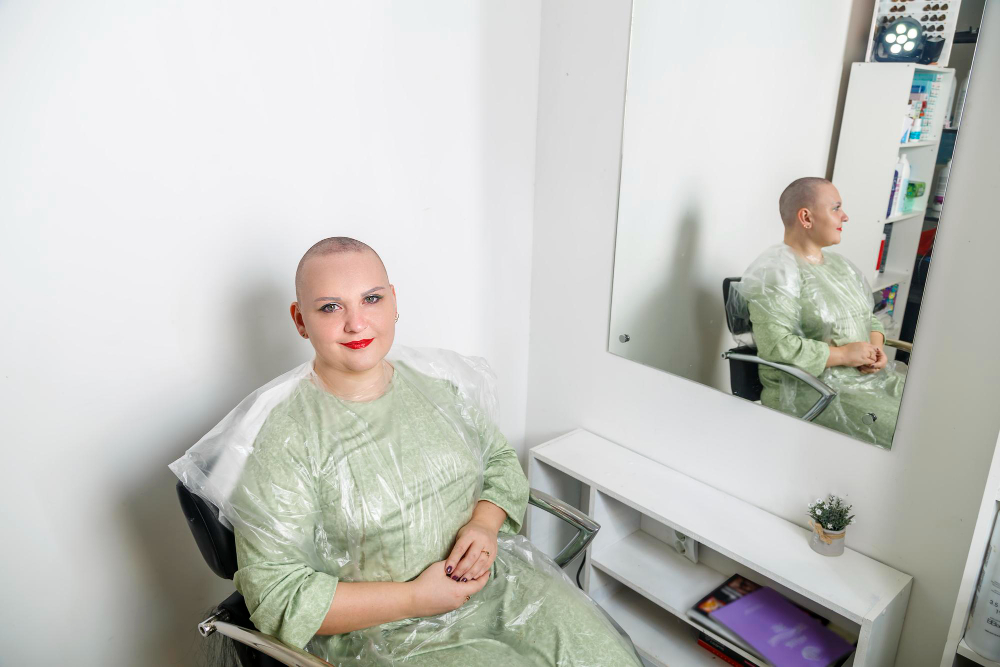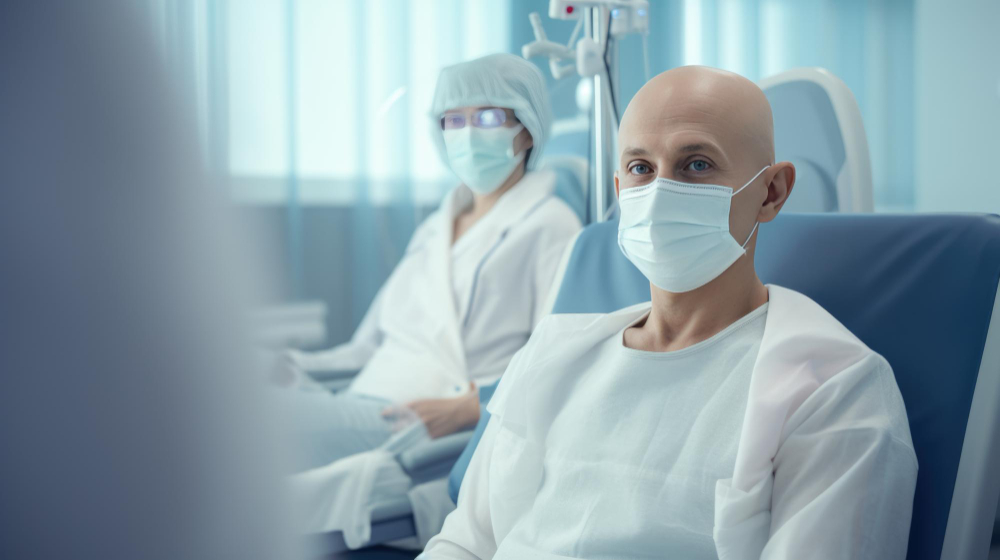The process of hair regrowth after chemo is a remarkable journey that often accompanies the challenging but life-saving experience of chemotherapy. In this article, we’ll embark on a quest to understand the science behind this fascinating phenomenon, shedding light on why hair loss occurs during chemotherapy, the intricate mechanisms governing hair regrowth, and the influential factors at play. Additionally, we’ll explore practical strategies for nurturing and supporting the resurgence of your hair. Whether you’re currently undergoing cancer treatment or simply curious about the remarkable biology of hair, this article serves as your comprehensive guide to comprehending the science behind hair regrowth after chemo. Join us on this enlightening journey, filled with hope, knowledge, and a profound appreciation for the human body’s capacity for renewal and healing.
Understanding Chemo-Induced Hair Loss
Chemotherapy is a life-saving treatment for cancer patients, but it often comes with a challenging side effect: hair loss. Understanding chemo-induced hair loss, its mechanisms, and the potential for regrowth is crucial for those undergoing cancer treatment.
Chemo-Induced Hair Loss is a very significant side-effect of cancer treatment. However, with the development of services such as RemoteDerm, hair loss treatment in Canada has seen significant advancements in recent years, offering cancer patients innovative options to manage and potentially restore their hair during and after chemotherapy.
Why Hair Loss After Chemotherapy?
The process of chemotherapy targets rapidly dividing cells in the body, which includes cancer cells, but unfortunately also affects healthy cells like hair follicles. This interference disrupts the natural hair growth cycle, causing hair to become weak and ultimately fall out. Not all chemotherapy drugs lead to hair loss, and the extent can vary from person to person, but it’s a common concern for many patients.

Chemo Hair Regrowth: A Sign of Hope
While hair loss during chemotherapy can be emotionally distressing, there is hope on the horizon. Most patients experience hair regrowth after their treatment ends. The timeline for regrowth varies, with some individuals seeing signs of new growth as early as three months after treatment, while for others, it may take six months or more. Patience is key during this period.
Nurturing Hair Regrowth After Chemo
To support the process of chemo hair regrowth, it’s essential to adopt hair-friendly practices. Gentle hair care, including avoiding harsh chemicals and minimizing heat exposure, can help protect emerging hair. A balanced diet rich in essential nutrients, such as biotin and protein, promotes healthy hair growth. Additionally, emotional support from friends, family, or support groups can help individuals cope with the emotional challenges of hair loss and regrowth.
The Science Behind Hair Regrowth
Understanding the science behind hair regrowth, particularly after undergoing chemotherapy, provides valuable insights into a process that can bring hope and healing to those who have experienced hair loss.
The Hair Growth Cycle
To comprehend how hair regrows, we must first understand the natural hair growth cycle. Hair growth happens in three stages:
- Anagen Phase: This is the active growth phase when hair is produced from the hair follicle. It can last several years, during which your hair grows longer.
- Catagen Phase: During this transitional period, hair growth slows and the hair follicle shrinks. This phase is relatively short compared to the anagen phase.
- Telogen Phase: This is the resting phase when the hair is shed, making room for new hair to grow in its place.
The Impact of Chemotherapy
Chemotherapy, while targeting cancer cells, can have a collateral effect on hair follicles. The drugs disrupt the natural hair growth cycle by primarily affecting rapidly dividing cells during the anagen phase. Consequently, the hair becomes weak and falls out during the telogen phase. Notably, not all chemotherapy drugs cause hair loss, and the extent of loss varies among individuals.

When Does Hair Regrow After Chemotherapy And Radiation?
The timeline for hair regrowth following chemo and radiation treatment varies. Most individuals begin to observe signs of regrowth around three to six months after treatment concludes. However, it may take up to a year or even longer for the hair to return to its pre-treatment thickness and texture.
Factors Influencing Regrowth
Several factors can influence the speed and quality of hair regrowth after chemotherapy:
- Type of Chemotherapy: Different chemotherapy drugs have varying effects on hair follicles, leading to differences in hair loss and regrowth.
- Dosage and Duration: The intensity and duration of chemotherapy treatment play a significant role in the extent of hair loss and the regrowth process.
- Individual Genetics: Genetic factors can determine how quickly and fully hair regrows, making it a highly individualized experience.
- Overall Health: Maintaining good overall health through nutrition and exercise can promote hair regrowth, as a well-nourished body is better equipped for the regrowth process.
To properly manage this tough aspect of cancer treatment, patients must first understand the science behind hair growth after chemotherapy. While the process may be time-consuming and emotionally draining, knowing the underlying mechanisms and elements influencing regrowth can provide solace and inspiration during this critical period.
What Helps Hair Growth After Chemo?
Recovering from chemotherapy-induced hair loss can be a liberating experience, and knowing how to support and accelerate the process can make a significant difference. Here, we explore various strategies and practices that can aid in hair regrowth after chemo.
Nutrition and Diet
A well-balanced diet plays a pivotal role in promoting healthy hair growth. Essential nutrients such as biotin, vitamin D, and protein are crucial for the development of strong and vibrant hair. Consider introducing the following foods into your diet:
- Biotin-Rich Foods: Eggs, nuts, and whole grains are excellent sources of biotin, a B vitamin known for its positive impact on hair health.
- Protein: Hair is primarily composed of protein, so make sure to consume an adequate amount of lean meats, fish, and legumes to support its growth.
- Vitamin D: Sunlight exposure and vitamin D-rich foods like fatty fish and fortified dairy products can help enhance hair strength.

Gentle Hair Care
While your hair is regrowing after chemo, it becomes more fragile. To minimize damage and support the emerging hair, adopt a gentle hair care routine:
- Avoid Harsh Chemicals: Avoid strong washes and conditioners that might deplete your hair’s natural oils.
- Limit Heat Styling: Excessive heat from hairdryers, curling irons, or straighteners can weaken the hair shaft, so use heat styling tools sparingly.
- Avoid Tight Hairstyles: Tight ponytails or braids can stress the hair follicles, leading to breakage, so opt for loose hairstyles during this period.
Patience and Emotional Support
Hair regrowth after chemo is a process that demands patience. Be prepared for your hair to go through various stages, from fine and short to gradually thickening. Surround yourself with a support network of friends, family, or cancer support groups to help you cope with the emotional challenges that may arise during this journey.
Understanding what helps hair growth after chemo involves a holistic approach encompassing proper nutrition, gentle hair care, and emotional resilience. With time and the right care, you can embrace the regrowth of your hair as a symbol of strength and resilience on your path to recovery.
Final Thoughts
In the context of cancer treatment, hair loss during chemotherapy can be a profoundly emotional experience. However, delving into the scientific aspects of hair regrowth after chemo offers a tale of resilience and optimism. It underscores the incredible restorative potential of the human body. By grasping the intricacies of the natural hair growth cycle, the repercussions of chemotherapy, and the factors influencing regrowth, individuals can find not just knowledge but a profound sense of empowerment. This journey demands patience, self-care, and a supportive network, all of which play pivotal roles in navigating this transformative period.
As hair gradually makes its return, it becomes a symbol of inner strength and triumph over adversity. It signifies the path towards recovery and the unwavering spirit that carries individuals through the trials of cancer treatment. Ultimately, the process of hair regrowth after chemo is not merely physical but profoundly emotional. It serves as a reminder that even in the face of adversity, there’s always room for renewal, growth, and the restoration of both inner and outer beauty. Armed with this knowledge, individuals can find empowerment and hope as they chart their unique course toward healing and recovery.
FAQs
- How long does it take for hair to return to its pre-treatment thickness?
It may take up to a year or more for hair to fully return to its pre-treatment thickness and texture.
- Can genetics influence how quickly hair regrows after chemotherapy?
Yes, genetics play a role in the speed and extent of hair regrowth after chemo, making it a highly individualized experience influenced by your unique genetic makeup.
- Can sunlight exposure aid in hair regrowth after chemo?
Yes, sunlight exposure can potentially aid in hair regrowth after chemo. Sunlight plays a role in vitamin D production, and vitamin D has been associated with improved hair follicle health, which can contribute to the regrowth of hair.
